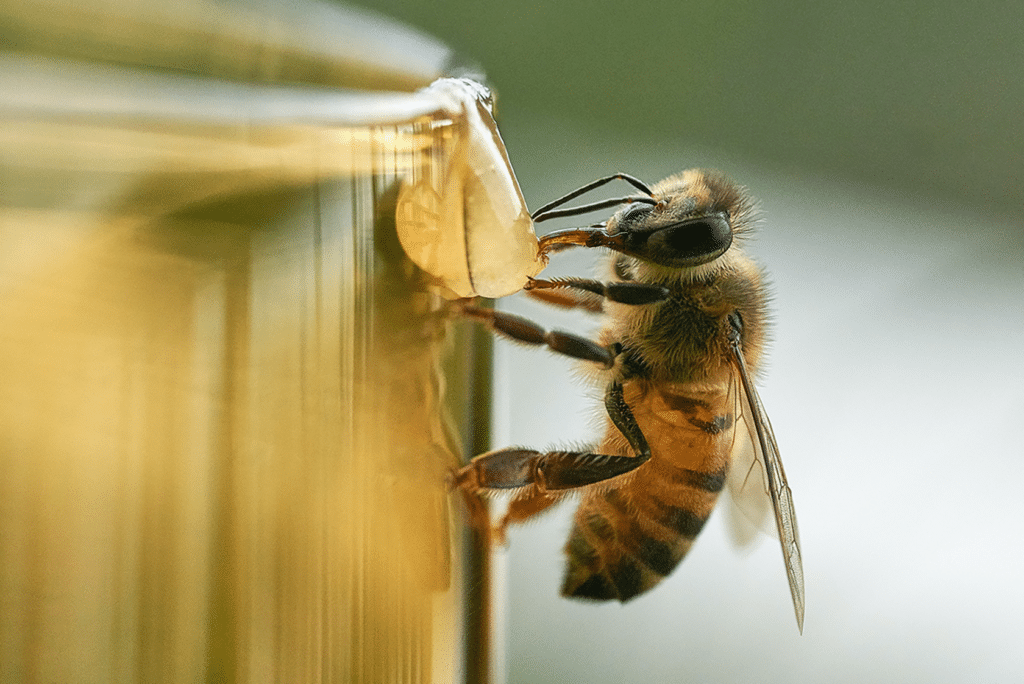Brazilian specialty coffee farmers are turning to bees to increase coffee quality and boost production by up to 30 per cent.
Currently, more than 100,000 highly resistant hybrid European and African bees are already busy at work in Brazil, helping pollinate coffee trees across Brazilian farms, which sell to approximately 70 million European consumers a year in Germany, United Kingdom, Spain, Switzerland, Greece, Norway, Denmark, and Finland.
Farmers are going back to basics by introducing new bee populations, using different pesticides, and adopting new sustainable farming methods to not only boost production but increase the taste and aroma of their beans.
For example, to compete in today’s specialty coffee market and international competitions, Brazilian coffee farmers must produce coffee with at least 87 points out of 100.
With the bees, farmers are finding that their coffee is increasing by one point or more, representing a competitive difference and benefit to sustainability-focused European consumers.
To introduce these new bee colonies to various coffee producing farms across three major states in the southeast of Brazil, these coffee producers are working with technology start-up Agrobee. This company rents out bees to farms and provides training to the coffee producers in sustainable insect practices, including the correct use and type of pesticides.
“Farmers are repopulating their farms with hybrid bees to increase further the quality of their coffee and increase production,” says Vanusia Nogueira, Director of the Brazil Specialty Coffee Association (BSCA) and Director of the ‘Brazil. The Coffee Nation’ project.
Brazil. The Coffee Nation is a project focused on promoting new sustainability coffee practices among farmers, created by the BSCA and the Brazilian Export and Investment Promotion Agency (Apex-Brazil), which is focused on attracting investments to Brazil.
“Thanks to these sustainable practices, Brazilian coffee producers have reduced the size of their farming area by 10 per cent since the 1990s but managed to increase their production by 30 per cent,” says Nogueira, who hails from a family of coffee producers and is a coffee producer herself.
“With the bees, the world’s biggest coffee producer is taking its sustainable production to the next level by help reintroduce bees and increase pollination rates significantly.”
So far, Agrobee has provided farmers with four different types of bees from the highly resistant genera of Apis, Jataí, Scaptotrigona, and Melipona.
“The world’s bee population is in decline and this poses a threat to global agriculture and future foods supply. We are working on redressing the balance,” says Marcelo Brussi, Founder and CEO of Minas Hill Coffee, and Australian importer of Brazilian green beans.
“As part of our mission, our main goal is to train the farmers in adopting best practices for the bees, changing pesticides, and further protecting the ecosystem to increase production without having to increase the size of their land. This has a very positive impact on the environment.”
Minas Hill is supporting honey pollination coffees through its farmer partner Alessandro Hervaz, who owns two properties in Brazil named Sitio Fortaleza and Sitio Boa Vista. According to Minas Hill, the results in quality and production are astounding.
“Demand for our bees coffees doubled last year and coffee farmers are using our intelligent pollination methods in key coffee-producing states of São Paulo and Minas Gerais in the southeast to boost yield and produce sustainable crops,” says Marcelo.
For more information on Minas Hill, visit www.minashill.com.au or for more information on the BSCA, visit www.bsca.com.br/index/home.
Written by Vanusia Nogueira of BSCA and Marcelo Brussi of Minas Hill Coffee.




